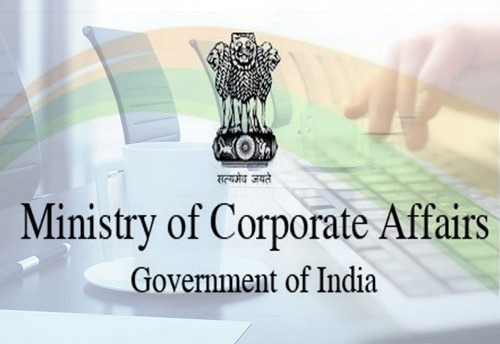V.D. Gyani, Actg. C.J.
1. Heard Mr. K.N. Choudhury, learned counsel appearing for the Appellant/Respondent No. 3 (in W.A. 142/98), Ms. N. Saikia, learned Govt. Advocate appearing for the Appellants/ Respondents (in W.A. No. 128/98) and Mr. B.D. Konwar, learned counsel appearing for the Respondent/writ Petitioner (in both the appeals).
2. This rig marole has been going on between two Executive Engineers under orders of transfer. The matter has come before this Bench not once, or twice, but thrice, at the interim stage, challenging the order passed by the learned Single Judge. Out of deference to the learned Single Judge, this Court sitting in appeal did not think it proper to pass any order except invoking the provision of Article 226(3) of the Constitution of India to put an end to the interim orders and leaving the matter entirely to the learned Single Judge for disposal. But that was not to be. Since an interim order was passed again on 12.6.98 in Misc. Case No. 606 of 1998 in Civil Rule No. 1434/98 making the following direction:
Accordingly, 1 direct the Respondents 1 and 2 to allow the Petitioner to continue in the post of Executive Engineer, Koliabor & Intd. Kollong Electrical Division, Nagaon until further orders from this Court.
and since this direction as made by the learned Single Judge was again challenged before the Division Bench, the Division Bench, without passing any order on merits, directed the parties to appear before the learned Single Judge on 25.6.98 and they agreed to do so. They accordingly appeared as well before the learned Single Judge. Till then the order of status quo as it obtained on 23.6.98 was directed to remain operative. Now, the parties are again before us since no order has been passed by the learned Single Judge on 25.6.98 and the matter stands adjourned to a date after the reopening of the Court after the ensuing summer vacation.
3. It is in these circumstances that the matter has again been listed before us.
4. Learned counsel appearing for the Respondent/writ Petitioner has urged that all the departmental instructions and guidelines have been thrown to the winds in transferring the writ Petitioner/Respondent just within nine months of his transfer. Without going into these departmental instructions and guidelines, we would like to point out that these instructions no doubt are required to be uniformly followed, but they cannot be made the basis for enforcement in a writ petition as they are not enforceable in a writ petition. If any authority is required, one may refer to
5. It is a settled principle of law that holder of a transferable post cannot insist on being posted at a particular place. Similarly, it is also a proposition of law that interim orders which overreach or cover the final relief, should not be passed and the Supreme Court has deprecated time and again the practice of granting interim orders which practically give the principal relief sought in the writ petition.
6. The direction quoted above is nothing short of this and by passing such orders, it serves nobody''s purpose, much less, the public purpose. On the other hand, it brings a host of other inconveniences and hardships in the day-to-day administration. In Shilpi Bose v. State of Bihar (supra), it has been categorically held that transfer orders should not be interfered with unless there is violation of any statutory rules and no such violation of statutory rules is pleaded, much less substantiated or proved. The question of convenience or inconvenience of an employee, illness of the other spouse, or husband and wife seeking transfer and posting at the same place, was the subject matter for consideration in
7. Considering the scope for interference and the efficacy of passing interim order, the matter is to be viewed in the light of these principles and so viewed, we do not find any justifiable ground for passing any interim order directing the Respondents 1 and 2 (in C.R. 1434/98), Appellants (in W.A. 128/98) to allow the writ Petitioner/Respondent to continue in office at the particular place ignoring the intervening facts which took place between 8.6.98 and 12.6.98.
8. Be that as it may, there is still more one ground urged by the learned counsel for the writ Petitioner/Respondent, which relates to malice. Though not specifically pleaded in the writ petition, but what we can gather from his argument is that it is both malice in law as well as malice in fact. So far as malice in fact is concerned, learned counsel for the Respondent/ writ Petitioner has referred to paragraphs 7, 11 and 16 of the writ petition. The pleadings, as contained in the aforesaid paragraphs are too vague and nebular to constitute malice either in fact or in law. The mere fact that the writ Petitioner has been transferred within nine months of his posting, necessarily, it cannot connote malice in law on the part of the authorities as explained by the learned counsel for the Appellant-State. It has been necessitated by exigencies of public service in managing the particular unit of the Department and as such the Appellant/Respondent No. 3 who possesses some better qualifications and experience was required to be inducted.
9. Be that as it may, we are not going into the merits of the case. The interim order in the nature of a direction to Respondents 1 and 2, as passed by the learned Single Judge cannot be allowed to stand in face of the catena of cases. It is liable to be quashed and accordingly quashed.
10. The appeals and the connected Misc. Cases stand disposed of in terms of the order passed above, with no order as to costs.

